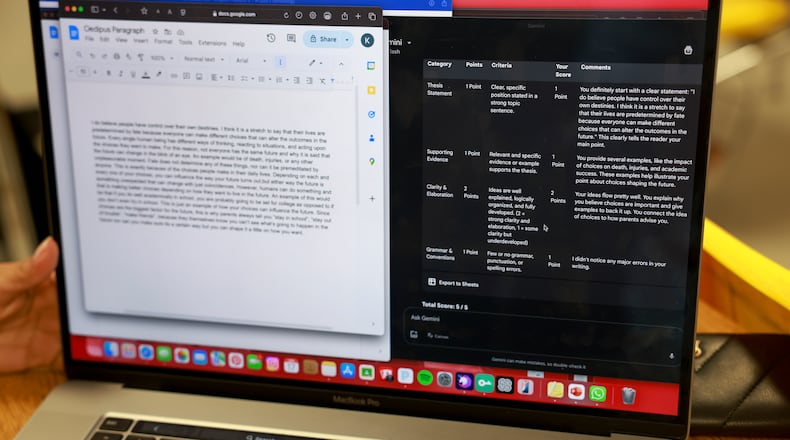Writing has changed. It’s time higher ed got the support to change, too.
The role of education today should be to create broadly literate students who understand how things work, why they work that way, and what the consequences are of inventing and adopting new writing tools.
Educators need to face our current moment by teaching the students in front of us and designing learning environments that meet the times, not looking to the past.
AI is not to blame for cheating. If students are cheating to get good grades, that is a logical consequence of turning college into diploma factories that churn out workers. We need to rethink that role of college as a degree factory.
AI-savvy college graduates are essential to our future workforce. Five things we need to do.
This artificial intelligence thing is a big deal – and its potential to disrupt virtually every industry over the next several years is not an exaggeration. So, what should a university like UD be doing to address this? This profound shift demands a new kind of graduate – one who isn’t just technologically aware, but is truly “AI-savvy” across every major. We must proactively equip our students with the skills to navigate, leverage, and ethically guide AI, ensuring they are not merely career-ready, but poised to significantly advance organizational missions and drive economic growth in an AI-dominated world.
- Read more from Thomas Skill, professor of communication at the University of Dayton
Community colleges aim to ensure no student is left behind in the age of AI
Sinclair’s approach blends hands-on integration of AI with critical discussions about ethics, bias, and the human impacts of artificial intelligence. By bridging disciplines — from health sciences to liberal arts to STEM — we aim to ensure every graduate leaves Sinclair not only ready to use AI but equipped to lead in shaping how AI is used. The AI Excellence Institute represents our commitment to doing this work together, across disciplines and with our community, so that no student is left behind in the age of AI.
About the Author




